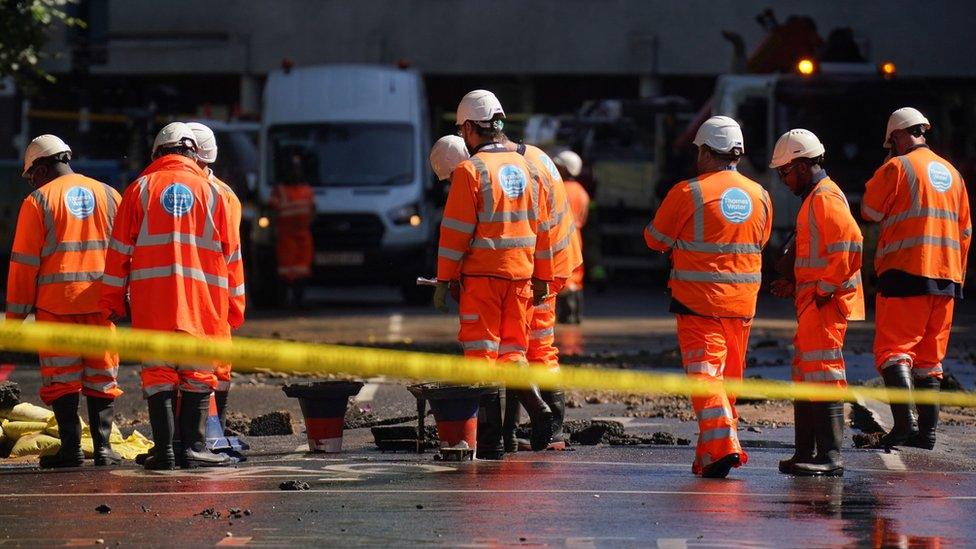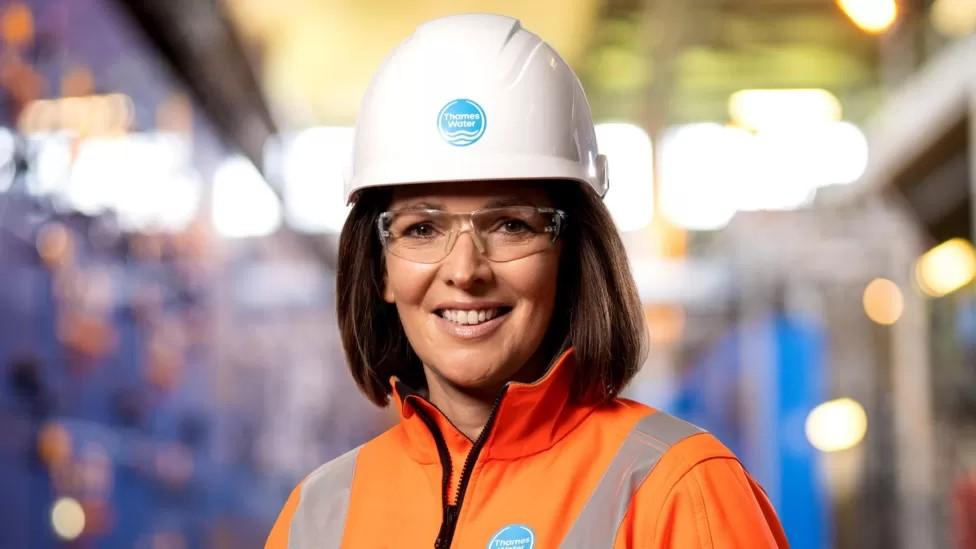No free lunch for nationalisation of water firm says Lord Howard
- Published

"There is no free lunch" when it comes to funding public companies such as Thames Water, Lord Howard has told the BBC.
The firm, which is billions of pounds in debt, faces a crisis, prompting fresh calls for it to be nationalised.
Lord Howard, who led the privatisation of the water industry more than 30 years ago, denied the plan has failed.
Green Party's Caroline Lucas said water firms should be placed under public ownership.
Thames Water, which serves a quarter of the UK population, has faced heavy criticism over its performance following a series of sewage discharges and leaks, with its chief executive quitting last week.
The company is in talks to secure extra funding, and the government has said "a lot of work is going on behind the scenes" and that a process was in place "if necessary".
Lord Howard, who was the minister charged with privatising the water under industry under Margaret Thatcher's government, told BBC Radio 4's Today programme that long-term investments in infrastructure required major investment.
"You can pay for them by borrowing, in which case interest has to be paid to the lenders, or you can pay for them by raising private capital, in which case dividends have to be paid to the people who provide that capital," he said.
"That is the only choice available, there is no free lunch."
Lord Howard said industries under public ownership must "compete for resources" with the likes of health, education and police, saying that when water was nationalised it was "way down the queue".
"When you release it into the private sector, you have recourse to private capital - you can make the investment that's needed," said Lord Howard, who was also the former Conservative party leader.
However, he accepted with hindsight that some companies should have been raising more of their capital through issuing equity.
"I think it is arguable that the companies have been allowed to take on too much debt," he said.
Another Conservative peer, Lord Tyrie, said it would be a "mistake" to renationalise water companies, as they were "better off... in the private sector, subject to some discipline in the market".
A process of renationalising would be "disruptive", with costs passed onto customers through higher bills over a "sustained period", he told BBC Radio 4's Week in Westminster.
But Lord Tyrie, the former chair of the Competition and Markets Authority (CMA), criticised "poor quality regulation" of the sector - and called for a commission to consider the issue.
'A failed experiment'
Ms Lucas, a Green Party MP and former party leader, told the Today programme that when privatisation took place water firms were "essentially handed a monopoly". She accused them of "loading up debt to pay their dividends to shareholders".
"This is an experiment that has totally failed - water remains in public ownership in most other countries for good reason," she said.
"We should be prioritising public need and environmental protection, and not private profit."
Lord Howard described her remarks as a "diatribe".
The Lib Dems have joined calls for the water industry to operate on behalf of the public, drawing up a bill to relaunch the firms as US-style "public benefit companies".
Under the plans, they would not be renationalised, but the water regulator would force them to be run for the good of the environment, as well as for profit.
Related topics
- Published27 June 2023

